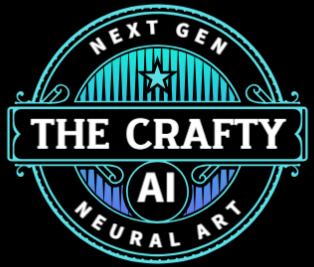Notion AI: Smarter Writing and Productivity Inside Notion
Notion, is a versatile all-in-one workspace, that has transformed how individuals and teams manage tasks, notes, and projects. Since its inception in 2013 by Notion Labs, Inc., it has grown into a powerful platform integrating note-taking, project management, and collaboration tools. The introduction of Notion AI in November 2022, with a full rollout in February 2023, elevated its capabilities by embedding artificial intelligence to enhance productivity and creativity. This article explores Notion AI’s features, use cases, pricing, and its impact on modern workflows.
Notion AI is a suite of AI-powered tools integrated directly into the Notion workspace, leveraging large language models (LLMs) like GPT-3.5 and Claude to assist users in content creation, editing, summarization, and data analysis. Unlike standalone AI tools, Notion AI operates within the context of your workspace, drawing on existing documents, databases, and integrations to provide tailored responses. It functions as a writing assistant, research tool, and task automator, reducing the need to switch between multiple applications.
Key Features
Content Creation and Editing: Notion AI can generate drafts for blog posts, emails, job descriptions, and more based on user prompts. It also offers editing tools to improve grammar, adjust tone (e.g., professional, casual, persuasive), and expand or shorten text. For example, users can highlight text and select "Ask AI" to refine content or rewrite it in a different style.
Summarization: The AI can condense lengthy documents, meeting transcripts, or articles into concise summaries, saving time for busy professionals. It excels at extracting key points from smaller sections rather than entire documents for better accuracy.
Translation and Multilingual Support: Notion AI supports translation into various languages, facilitating collaboration across global teams. Users can highlight text, select "Translate," and choose a target language to break down language barriers.
Data Analysis and Automation: For Notion databases, AI can autofill properties, categorize tasks, and generate charts or insights from raw data. Recent updates allow AI to interact with databases, enabling actions like scheduling content calendars.
Q&A Feature: Introduced in November 2023, the Q&A feature lets users query their workspace to retrieve information from documents or connected apps like Slack and Google Docs. For instance, asking “What blockers do I have this week?” pulls relevant data from integrated Linear projects.
AI Connectors: In beta, AI connectors enable Notion AI to access external tools like Google Docs, Sheets, and Slides, with future support planned for GitHub and Jira. This enhances its ability to synthesize information across platforms.
Notion MCP (Multi-Context Platform): Launched in July 2025, this hosted server allows AI agents like ChatGPT, Claude, and Cursor to read and write in Notion workspaces, turning conversations into pages or updating tasks seamlessly.
How to Use Notion AI
Getting started with Notion AI is straightforward:
Sign Up or Log In: Create a free Notion account or log in at notion.so.
Enable AI Features: Navigate to settings to activate Notion AI, which may require a subscription upgrade.
Interact with AI: Use one of three methods:
Press the spacebar on a new line to prompt the AI.
Type “/AI” to access AI blocks like summarization or brainstorming.
Highlight text, click the AI icon, and select actions like “Improve writing” or “Translate.”
Customize Prompts: For precise outputs, craft specific prompts (e.g., “Write a blog post outline about sustainable living”). Users can also regenerate responses or adjust parameters like tone or length.
Practical Use Cases
Notion AI caters to diverse users, including project managers, writers, students, and teams:
Content Creators: Bloggers and marketers can draft posts, generate outlines, or create social media content, bypassing writer’s block.
Project Managers: AI automates task prioritization, generates project plans, and updates statuses by analyzing integrated task boards.
Researchers and Students: Summarization and note organization help distill complex information into study notes or research briefs.
Teams: AI enhances collaboration by managing shared workspaces, summarizing meeting notes, and generating action items. Integration with tools like Tactiq allows real-time transcription and summarization of Zoom or Google Meet calls.
Knowledge Management: AI curates wikis by suggesting updates, tagging content, and linking related pages, ensuring an up-to-date knowledge base.
Limitations and Considerations
While powerful, Notion AI has limitations:
Accuracy: Like all LLMs, it can hallucinate, requiring fact-checking for critical tasks.
Model Constraints: It uses GPT-3.5 and Claude, not newer models like GPT-4o, potentially limiting performance.
Learning Curve: New users may need time to master Notion’s interface and AI features.
Feature Availability: Some features, like AI connectors, are in beta and not available in the free trial.
Privacy and Security
Notion AI prioritizes user trust by not using data for training without consent. Business and Enterprise plans include advanced security features like single sign-on and audit logs.
Pricing
Check out the current pricing on the website here.
Conclusion
Notion AI transforms the Notion workspace into a dynamic hub for productivity and creativity. By integrating AI-driven content creation, summarization, and automation, it streamlines workflows for individuals and teams. Whether you’re drafting content, managing projects, or organizing research, Notion AI’s context-aware tools save time and enhance efficiency. As it continues to evolve with features like AI connectors and MCP, Notion AI is poised to remain a leader in AI-enhanced productivity. Explore Notion AI at notion.so to unlock its potential for your workflow.

